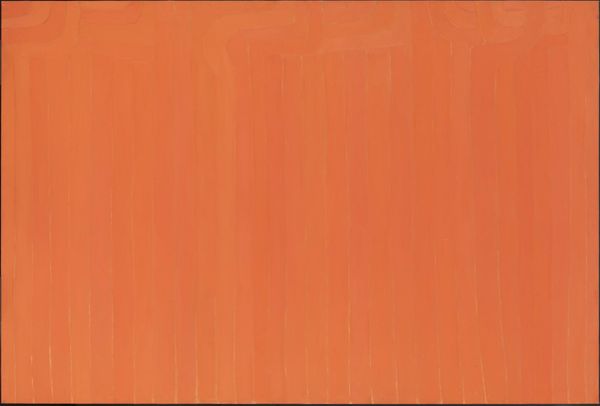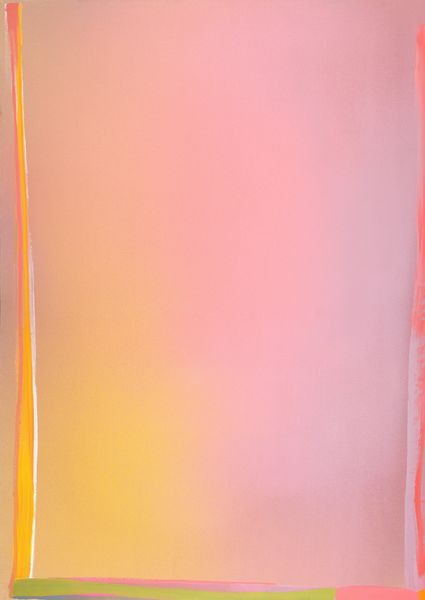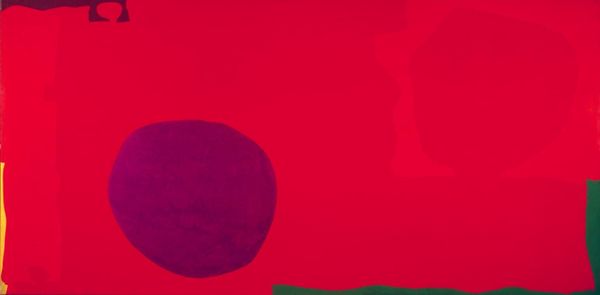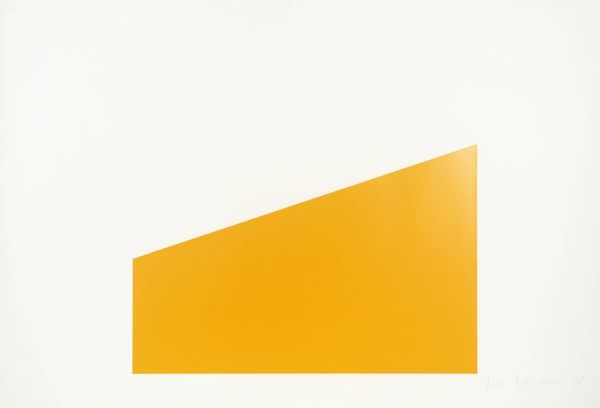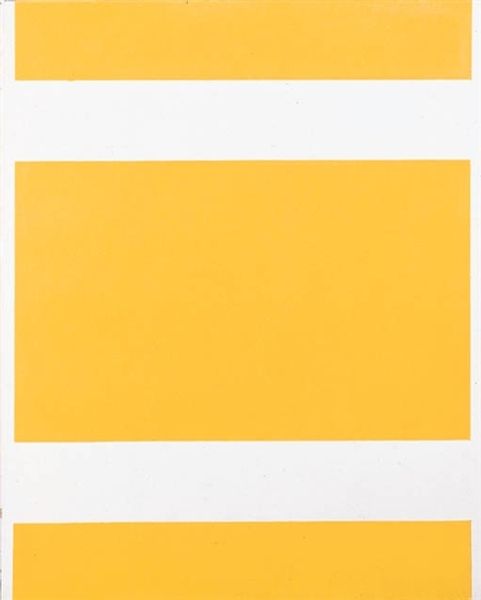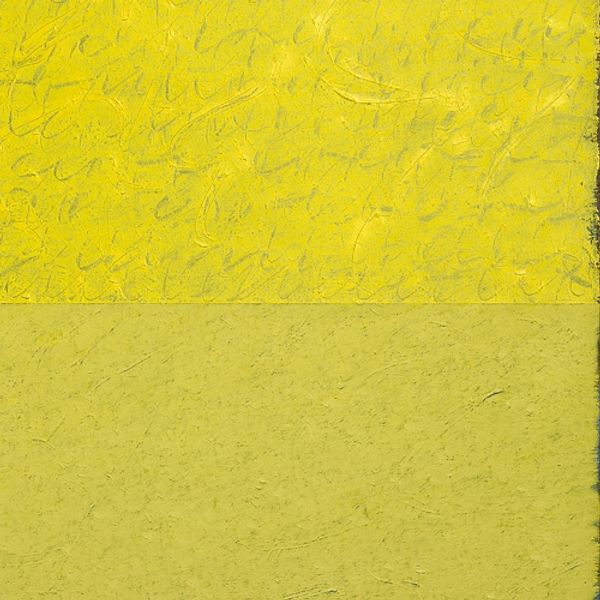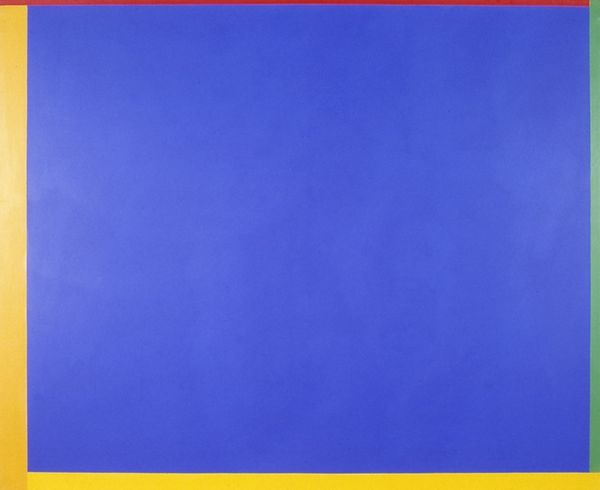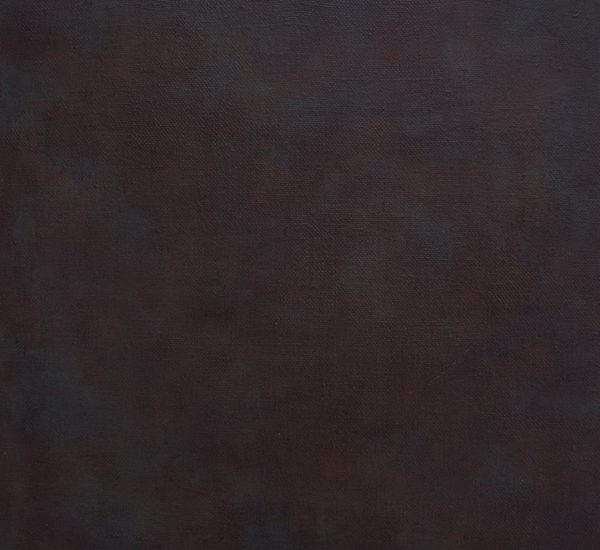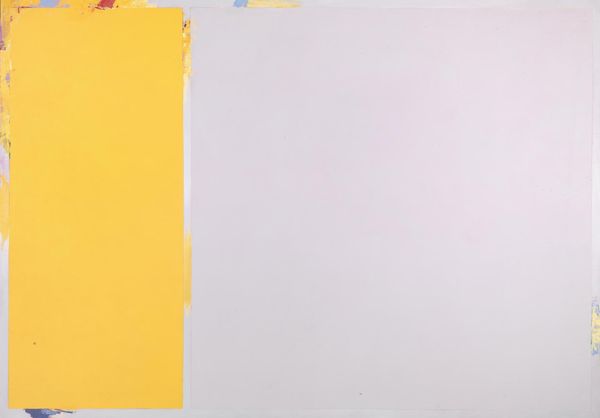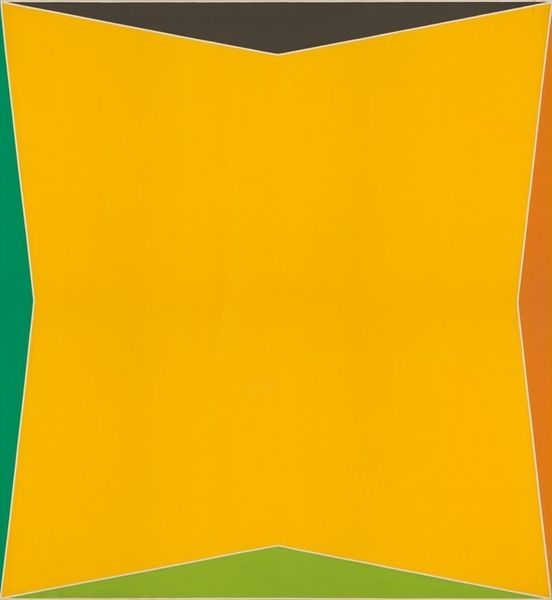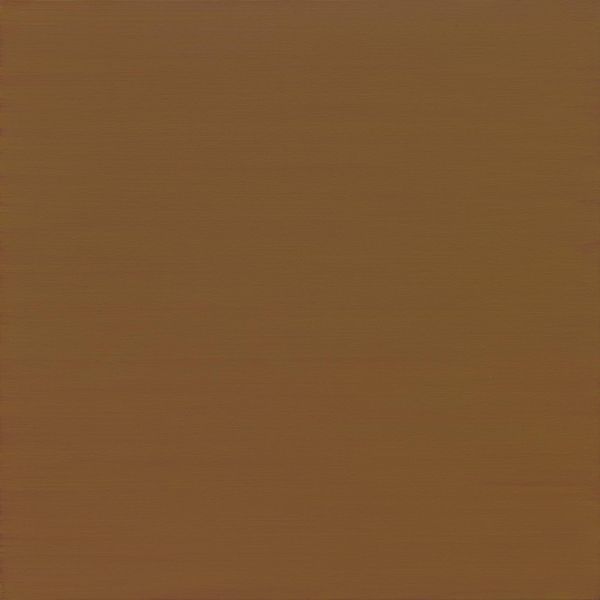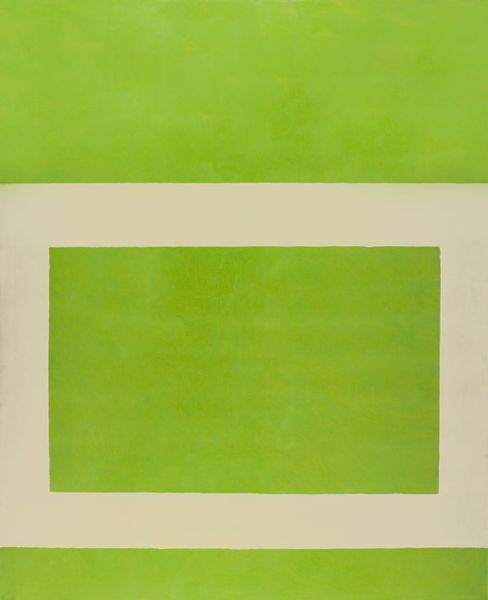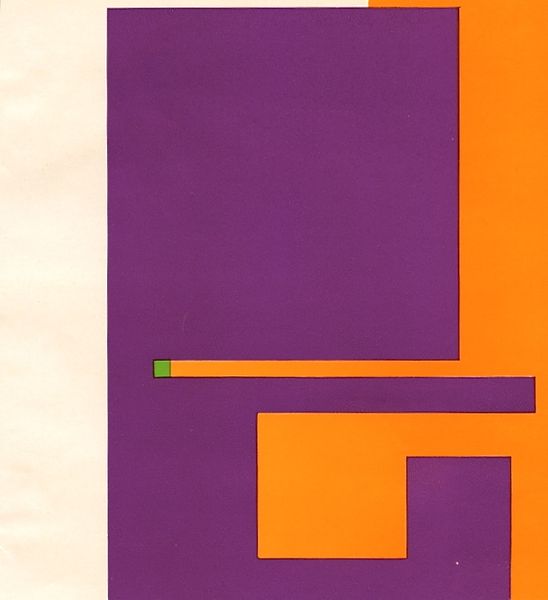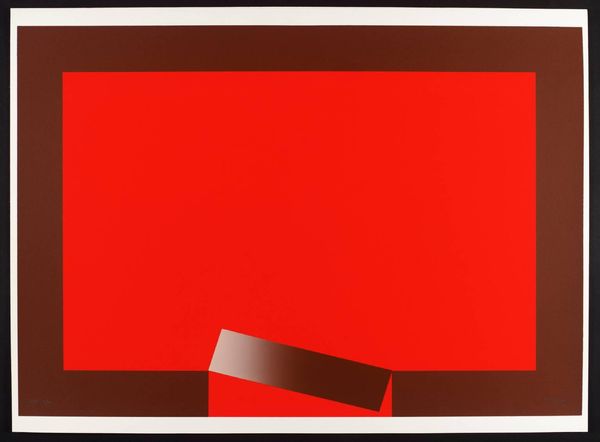
Copyright: Jeremy Moon,Fair Use
Curator: I find myself immediately drawn to the vibrant simplicity. It’s a bold declaration using minimal means. What do you see, Editor? Editor: It's arresting. Stark. At first glance, it appears to be almost aggressively straightforward. Yet there is also something pleasing and approachable in the symmetry. This "Untitled" acrylic painting, created by Jeremy Moon in 1972, feels deeply rooted in its historical moment. Curator: It absolutely speaks of its time, doesn’t it? The colors feel like a direct conversation with the Pop Art movement. But tell me more about what you mean by rooted in its time. Editor: The hard-edge painting style is undeniable. And this idea of removing the artist's hand, of striving for objective perfection and flawless execution—that resonated powerfully during the peak of high modernism, when the art world's institutions promoted abstraction. How do you think the artist thought to incorporate patterns and geometric shapes at that time? Curator: I think Moon tapped into something very primal, reducing form to these very basic elements, exploring pure relationship. Lines, for instance, often symbolize boundaries, pathways, and connections, but here they feel almost...deconstructed. Editor: Deconstructed indeed. The pink rectangle is off balance, the geometry doesn't enclose the painting to provide that sense of "perfection," so to speak, even despite itself. But it’s interesting to view this kind of art that almost shuns overt symbolism, and question the role that visual culture can have in art from the 1970s. Curator: The almost meditative quality comes to mind when faced with such large color fields. Editor: Definitely meditative. It strips away distraction. It reduces form and composition. It reflects its political roots during modernism by not being overly flashy or excessive. Curator: A visual haiku of sorts, stripping away everything except its barest essence. Editor: Precisely. And situating this minimalist declaration within the artistic dialogues of its era really illuminates how Jeremy Moon's abstract vision helped shaped it. Curator: Indeed. Viewing its simple power provides a lens to think through broader strokes in modernism.
Comments
No comments
Be the first to comment and join the conversation on the ultimate creative platform.
